Geschichtsblätter: 1578, Battle at Gembloux
Detail
Date: 31 January 1578
Dimensions (not including margins): 21 x 28 cm
Condition: Very good. Strong paper and wide margins. Centre fold as published.
Condition rating: A+
Verso: blanco
Text at bottom: in German
In stock
Hogenberg shows the Battle at Gembloux (Gemblours) on 31 January 1578
This was one of the biggest battles of the war. At “Gemblours”, the armies met Anton van Goignies and governor Don Juan (himself an illegitimate son of Charles V, and with him Duke Alexander Farnese for the first time), with 25,000 and 17,000 troops respectively.
The battle was also part of the 30 Years’ War: the rebel army was composed of Dutch, Flemish English, Scottish, French and Walloon soldiers. It led to a devastating defeat of the States with an estimated 10,000 dead, wounded and captured men. State defeat accelerated the dissolution of the unity of the rebellious regions.
Aftermath: William of Orange was forced to leave Brussels. On 6 January 1579 the provinces loyal to the Spanish Monarchy signed the defensive Union of Arras and thus expressed their loyalty to king Philip II.
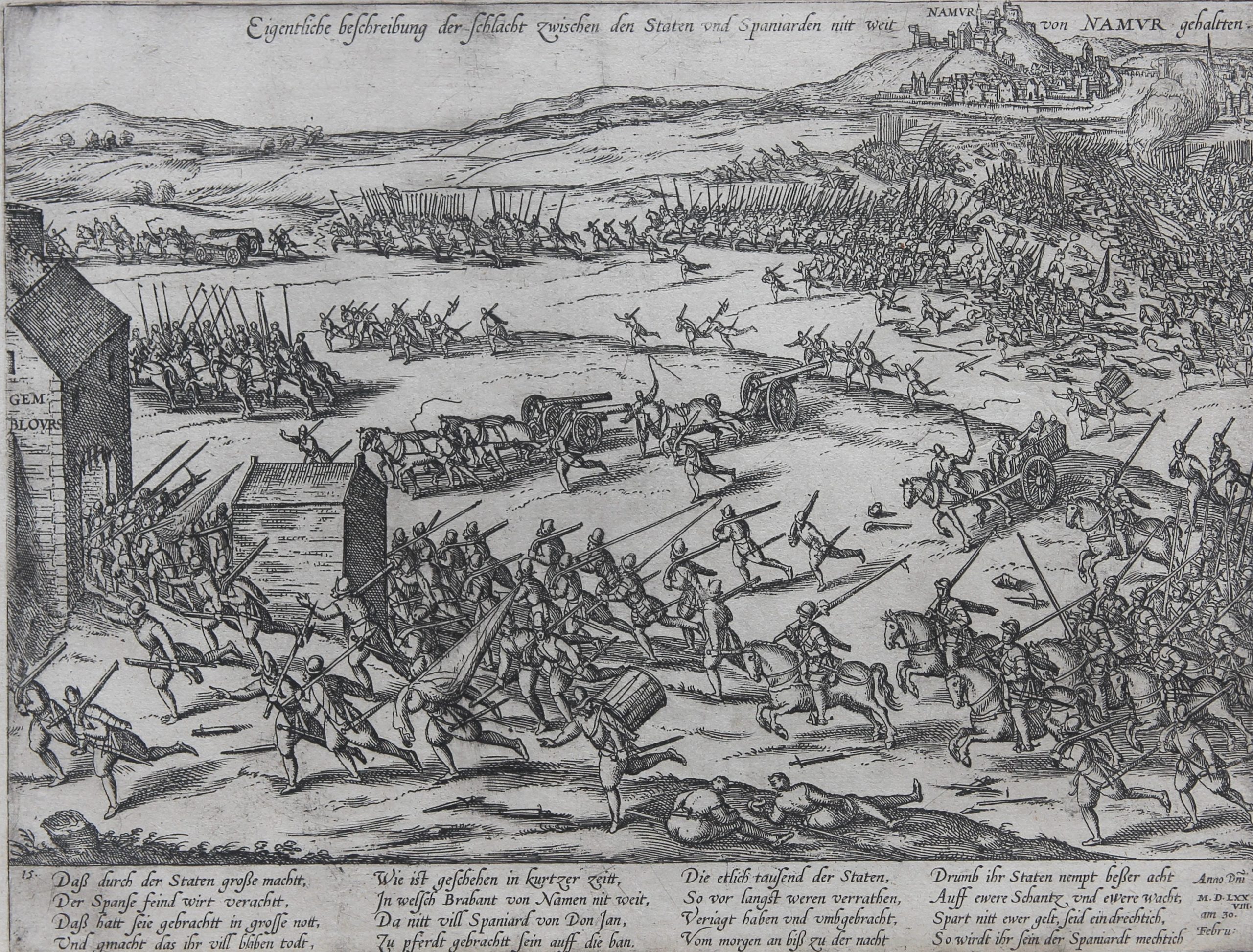
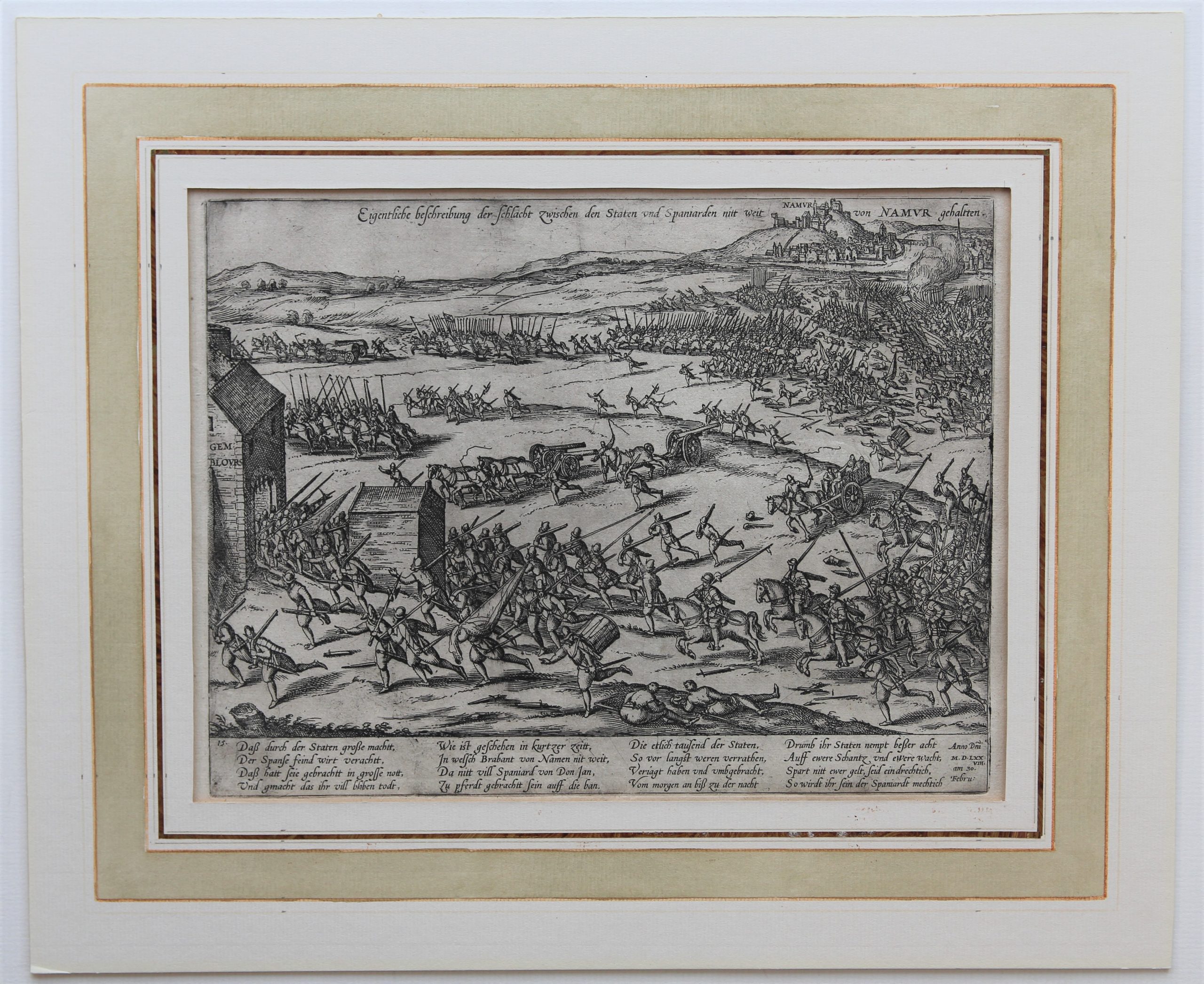
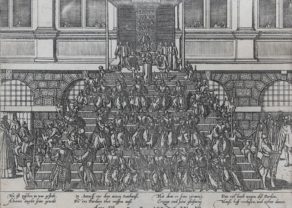
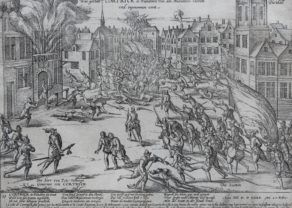
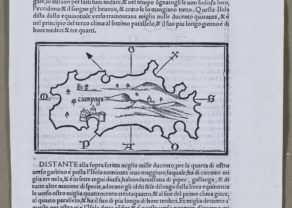
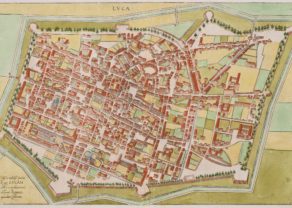
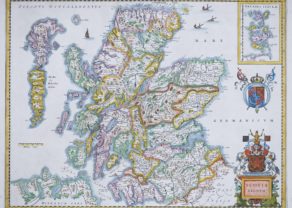
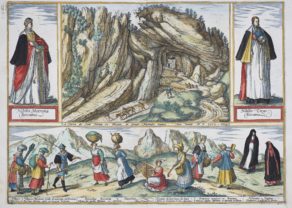
Hogenberg and his Geschichtsblätter (news prints)
The publication of news prints was already in vogue in the 16th century before Hogenberg published his well-known Geschichtsblätter. In printing houses in Rome (Lafreri) and Venice (Gastaldi), the cartographers also published these such news prints. The preferred topics were then-current political or military images. Publishing news prints actually went hand in hand with the publication of maps.
Hogenbergs Geschichtsblätter are a collection of several hundred history papers that Frans Hogenberg and his son Abraham published between 1569 and 1637. The central theme is the Eighty Years’ War (1568 – 1648), but some views also show the French Religious Wars (1559 – 1573) and the English dynastic disputes. The Geschichtsblätter illustrate in an almost photographic way an act of war with a German caption at the bottom, sometimes in verse form, dating the fact. They provide both a visual and a narrative picture of the evolution of the war. The different engraving styles show that several engravers contributed to this work in the studio of the Hogenberg family. The Geschichtsblätter were sold loose-leaf and were popular.
Several editions of the Geschichtsblätter are known with varying numbers of pages and varying comments.